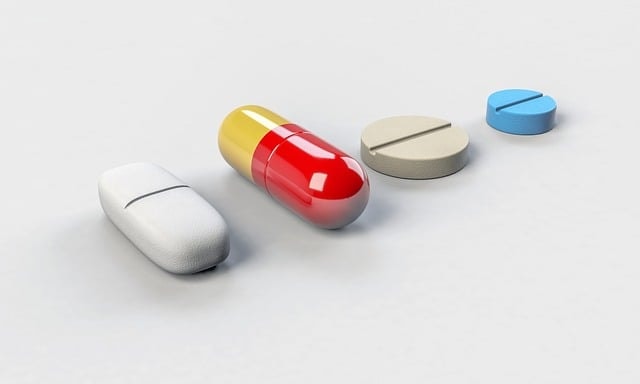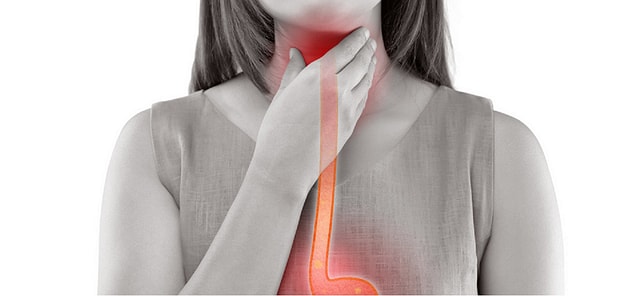What is a Safe Cold Medicine for Recovering Addicts?
Minimizing the Mind Altering Effects of Cold Medications
When you’re in recovery from addiction, even a simple cold can present unexpected challenges. Finding safe cold medicines that won’t jeopardize your sobriety is crucial, but it can feel like navigating a minefield.
At SOBRLIFE, we understand the importance of maintaining your recovery while managing common illnesses. That’s why we’re tackling this essential topic head-on.
For many in recovery, the prospect of taking any medication can be daunting. Is there such a thing as a safe cold medicine for recovering addicts?
The fear of relapse or accidentally consuming something that could trigger cravings is real and valid. Many common medications, including antihistamines and psychiatric drugs, can be mood altering and potentially lead to cravings or relapses. But don’t worry – you’re not alone in this decision.
We’re here to provide you with the information and support you need to make informed decisions about managing cold symptoms safely in recovery.
Understanding the Risks of the Wrong Cold Medication

Before we dive into safe options, it’s crucial to understand why some common cold medicines can be problematic for those in recovery. Many over-the-counter cold remedies contain ingredients that can pose risks to your sobriety.
- Alcohol is perhaps the most obvious concern. It’s a common ingredient in liquid cold medicines and can be a direct threat to those recovering from alcohol addiction. Even small amounts can potentially trigger cravings or lead to relapse. Past alcohol abuse can influence current treatment decisions, potentially leading to relapse if certain medications are used.
- Pseudoephedrine, a decongestant found in many cold and allergy medications, is another ingredient to watch out for. While it’s effective for relieving congestion, it’s also a precursor chemical used in the production of methamphetamine. For this reason, it’s often kept behind the pharmacy counter and can be a trigger for those with a history of stimulant addiction. Pseudoephedrine can also impact the central nervous system, raising concerns about drug dependency and withdrawal symptoms.
- Dextromethorphan, commonly known as DXM, is a cough suppressant found in many cold medicines. In high doses, it can produce euphoric effects and has a potential for abuse. For recovering addicts, particularly those with a history of DXM abuse, medicines containing this ingredient should be avoided. OTC cold medications containing such ingredients can mimic the effects of addictive substances and trigger cravings, highlighting the need for caution among sensitive populations.
The risk isn’t just about these specific ingredients triggering a relapse to your primary addiction. There’s also the concern of cross-addiction – where you might develop a new addiction to a substance that wasn’t previously problematic for you. This is why it’s crucial to approach all medications with caution in recovery.
What are Safe OTC Cold Medicine Options?
Now that we’ve covered the risks, let’s explore some safe options for managing cold symptoms in recovery. Remember, always consult with your healthcare provider before starting any new medication or treatment regimen.
Non-medicinal remedies are often your safest bet. Rest and proper hydration can go a long way in helping your body fight off a cold. Saltwater gargles can help soothe a sore throat, while steam inhalation can provide relief from congestion. These simple home remedies are not only effective but also completely safe for those in recovery.
When it comes to over-the-counter options, acetaminophen (like Tylenol) is generally considered safe for pain and fever relief. Just be sure to stick to the recommended dosage and be aware that some formulations may contain additional ingredients.
Saline nasal sprays can help clear congestion without the risks associated with medicated decongestants. They work by moisturizing the nasal passages and helping to flush out irritants.
Natural Sore Throat Lozenges and Remedies

For sore throats, non-medicated lozenges can provide relief without the risks associated with medicated versions. Look for simple ingredients like honey or menthol. Throat lozenges are also a safe option for soothing throat irritation.
Natural remedies can also be effective and safe options. Honey has been shown to be as effective as dextromethorphan in suppressing coughs, particularly in children. Ginger can help with nausea, a common cold symptom, and echinacea may help support your immune system. Herbal supplements can offer benefits but come with potential risks, so use them cautiously.
Remember, “natural” doesn’t always mean safe for everyone. Some herbal remedies can interact with medications or have their own risks. Always check with your healthcare provider before trying new treatments, especially if you’re taking other medications.
By understanding the risks and exploring safe alternatives, you can effectively manage cold symptoms without jeopardizing your recovery. Always consult your healthcare provider about using a specific medication safely, especially if it is not listed among safe options.
Reading Labels and Ingredient Awareness for Safe Medications
When it comes to managing cold symptoms in recovery, knowledge truly is power. Being able to read and understand medication labels is a crucial skill that can help you make informed decisions about what’s safe for you to take. It’s also important to be cautious with OTC medications, as some can mimic the effects of addictive drugs and potentially trigger cravings or relapse during recovery.
Start by carefully scrutinizing the ingredient lists on any over-the-counter medications. Look out for the problematic ingredients we discussed earlier, like alcohol, pseudoephedrine, and dextromethorphan (DXM). Remember, these ingredients might be listed under different names. For instance, alcohol might be listed as ethanol, while pseudoephedrine could appear as PSE.
If you’re taking other medications, including those for managing your recovery, be sure to check for potential interactions. Additionally, be aware of the risks associated with appetite suppressants, as many operate similarly to stimulants and can be harmful.
Don’t hesitate to ask for help if you’re unsure about a label or ingredient. Pharmacists are excellent resources and can often provide guidance without needing a full medical consultation.
Consulting Healthcare Professionals in Recovery
While it’s wise to educate yourself about safe cold remedies, there’s no substitute for professional medical advice. Consulting with healthcare professionals is a crucial step in managing your health safely in recovery. Discussing your pain medication needs with your healthcare provider is essential to ensure safe and effective pain management.
When you visit your doctor or pharmacist, be open about your recovery status. This information is vital for them to provide you with the most appropriate advice and treatment options. Healthcare providers are bound by confidentiality rules, so you can feel safe sharing this information.
For instance, they might recommend a non-narcotic cough suppressant if you need something stronger than over-the-counter options. Additionally, when undergoing dental procedures, it is important to communicate your addiction history to avoid prescriptions for narcotics and to discuss the use of local anesthesia instead of opioids or nitrous oxide.
Strategies for Managing Cold Symptoms in Substance Abuse Recovery
Dealing with a cold while in recovery isn’t just about finding the right medicines. It’s also about implementing strategies to support both your physical health and your recovery.
Building a strong support system is crucial, especially when you’re not feeling your best. Reach out to trusted friends, family members, or your recovery support group. Let them know you’re under the weather and might need extra support.
Sometimes, just having someone to talk to can make a world of difference when you’re feeling vulnerable. Be cautious with over-the-counter and prescription options that could cause adverse effects, as certain medications can lead to physical dependence, especially those in the opioid drug class.
Stress Reduction and Maintaining Mental Health
Mindfulness and stress-reduction techniques can be powerful tools for managing discomfort without turning to potentially problematic substances. Practices like deep breathing exercises, meditation, or gentle yoga can help alleviate some cold symptoms while also supporting your mental health. Managing severe pain is crucial to avoid relapse, as untreated pain can be a significant risk factor.
Try to maintain your regular recovery routines as much as possible, even when you’re sick. If you usually attend support group meetings, consider participating virtually if you can’t make it in person. Keeping up with these routines can provide a sense of normalcy and stability during a challenging time.
Remember, it’s okay to rest and take care of yourself. In fact, allowing yourself the time and space to recover fully can be an act of self-care that supports your overall health. Use this time to practice self-compassion and reinforce your commitment to your health and sobriety.
The Role of Prevention in Overall Health

As the old saying goes, an ounce of prevention is worth a pound of cure. This is particularly true when it comes to managing health in recovery. While we can’t always avoid catching a cold, there are steps we can take to reduce our susceptibility and minimize the impact when illness does strike.
Maintaining a healthy lifestyle is your first line of defense. Regular exercise, a balanced diet rich in fruits and vegetables, and adequate sleep all contribute to a strong immune system. These habits not only help ward off colds but also support your overall recovery journey. Additionally, finding safe pain relief options is crucial to avoid the risks associated with addictive substances, particularly opioids.
Good hygiene practices are crucial in minimizing exposure to cold and flu viruses. Regular handwashing, avoiding touching your face, and keeping your living space clean can all help reduce your risk of catching a cold. If someone in your household is sick, take extra precautions to avoid spreading the illness.
The Latest Resources for Recovery Live at SOBRLIFE
Remember, there are many safe ways to treat cold symptoms without compromising your recovery. From simple home remedies like rest and hydration to carefully selected over-the-counter medications, you have options. The key is to stay informed, be vigilant about ingredients, and never hesitate to seek professional advice when you’re unsure.
At SOBRLIFE, we believe in your ability to overcome these challenges and continue growing in your recovery.
Your health and your sobriety are worth protecting, even when facing something as common as a cold.
Resources
- Substance Abuse and Mental Health Services Administration (SAMHSA): www.samhsa.gov
- National Institute on Drug Abuse (NIDA): www.drugabuse.gov
- American Society of Addiction Medicine (ASAM): www.asam.org
